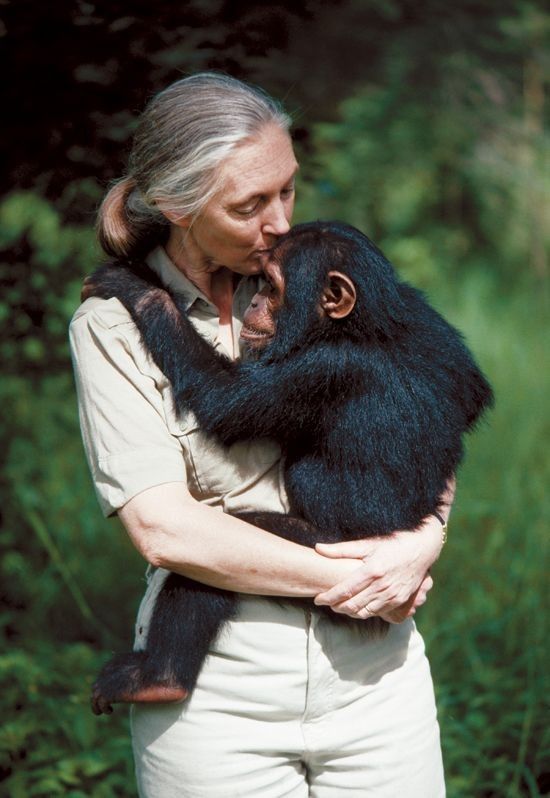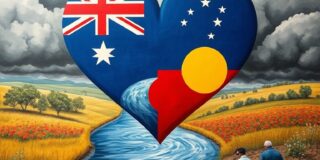
Three score years and ten and anything else is a bonus, an adage from a different era. What we do with the years allotted to us by the Mœræ is a very individual choice. We can be influenced, we can be presented with opportunities, and we will certainly face challenges; the truth of the person is in how they face each of the circumstances, it is the measure of their character.
To live to the age of 91, still be travelling on average 300 days per year, teaching and advocating for a planet you know you have few days left upon, speaks most highly of a person. Dr Jane Goodall was such a person. At the age of 23, she travelled to Kenya and three years later found herself working with Dr Louis Leakey studying chimpanzees in Tanzania. Ultimately, she attained a PhD based upon her groundbreaking studies.
But it is not so much the study of chimpanzees or the fact that she was a woman breaking new ground in a conservative male dominated area of research that is so impressive. Rather, Jane saw beyond the chimpanzees, beyond the animals to all species, even humans. She made a conscious choice to do the best she could each day. “What you do makes a difference, and you have to decide what kind of difference you want to make.” And a difference she made. Her research led her to recognise the destruction we pose to animal habitats and to become an advocate for conservation and animal rights. Flying over the Gombe Stream National Park in 1986 where she had first studied primates, she witnessed the encroachment of expanding villages on the wilderness. Realising the impact it would have on the chimpanzees and hearing similar tales from other scientists, she broadened her energies to conservation. The establishment of her Jane Goodall Institute in Gombe has employed local people, preserved habitat and assisted in reforestation long before the concerns about global warming were widely recognised. It has expanded to reach across 35 countries, including Australia, educating and encouraging people, especially youth, about the need to protect the environment, lest we all suffer. Hugo, Jane’s son, apparently realised that his mother was “saving the world” for future generations.
Opportunities came from the support of family and the belief of her mentor, Dr Leakey, without whom Jane would possibly not have attended university, let alone studied chimpanzees. Through her earnest studies, seminal research and remarkable dedication she has returned dividends to not only her mentor, but humankind. It cannot have been easy. The young unmarried woman, taking up resources and presuming she knew better than the staid male “experts” who did their best to discredit her work, told her that she couldn’t go to Gombe alone, that she was wrong to name the chimpanzees, that animals do not have personalities. As she quipped, anyone who had ever owned a dog knew that animals most definitely do have personalities. The chauvinism she faced was a barrier she crossed so that many other women would have less reason to fear.
Jane was also afflicted by prosopagnosia, impairing her ability to recognise faces including those of her beloved chimpanzees. Her acceptance of her condition and tenacity in navigating its burden is yet greater testament to her character.
Quite apart from her animal and environmental advocacy, Jane was a humanitarian. Believing that head and heart need to work in concert and with a lifetime’s energies directed toward building a more sustainable and kinder world, she was appointed a UN Messenger of Peace in 2002. Embodied in her concept of hope for the planet and for those who inhabit this unique piece of space rock, was the belief that it wouldn’t happen on its own. Hope required her effort – it requires our effort – to be realised. It demands optimism and compassion for other living things so that we act to preserve, protect and re-establish the environment in which all things flourishes.
All this makes one think that this woman was superhuman. Perhaps she was. I have no qualms calling Dr Jane Goodall a giant of humankind. The impact of her life is extraordinary, the most significant portion having been lived in the remote jungle of Tanzania creating ripples felt around the world. It is the life well lived, to its fullest extent and potential. Others stand on her shoulders, upon the work she began, so much more than the study of chimpanzees. A once in a lifetime heroine. We are the lesser for her passing.
Ave, soror, atque vale.


